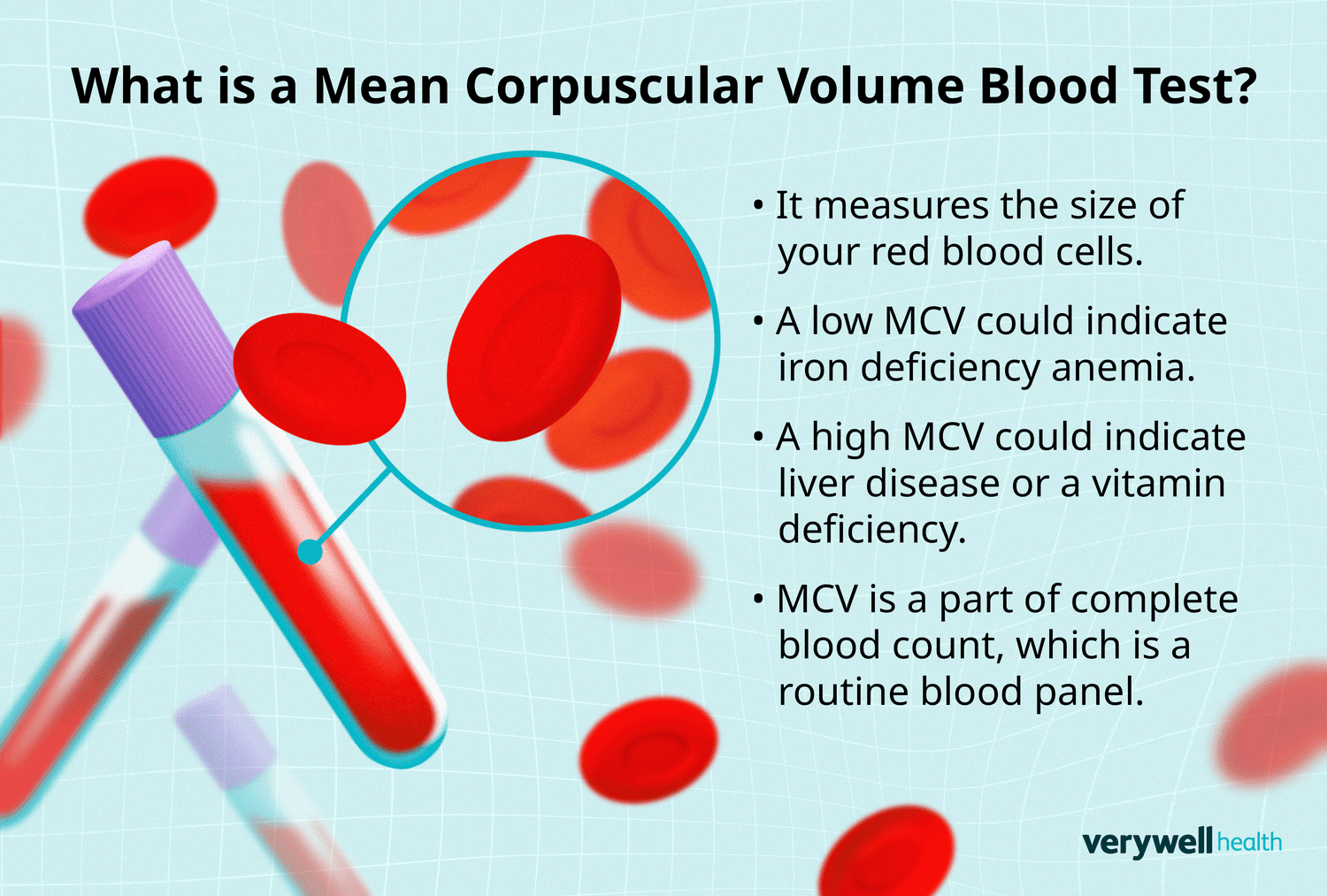A blood test can reveal many secrets about our health, but one result that often raises concerns is a high MCV (mean corpuscular volume). What does it mean when your doctor tells you your MCV levels are through the roof? In this blog post, we’ll delve into the world of hematology and explore what a high MCV really means for your overall well-being.
What is MCV, Anyway?
Before we dive into the implications of a high MCV, let’s start with the basics. MCV stands for mean corpuscular volume, which measures the average size of red blood cells in your body. Red blood cells, or erythrocytes, are responsible for carrying oxygen from your lungs to the rest of your body. A normal MCV range is around 80-100 femtoliters (fL), but what happens when those numbers go up?
The Relationship Between MCV and Vitamin B12 Deficiency
One major culprit behind high MCV levels is a deficiency in vitamin B12. Vitamin B12 plays a crucial role in the production of red blood cells, and when you’re low on this essential nutrient, your body starts producing larger-than-normal red blood cells to compensate. These giant cells are less efficient at carrying oxygen, leading to fatigue, weakness, and other symptoms.
This is just the beginning of our exploration into what a high MCV really means. In the next section, we’ll examine some common causes of high MCV levels and explore the importance of addressing this issue for optimal health.

A blood test can reveal many secrets about our health, but one result that often raises concerns is a high MCV (mean corpuscular volume). What does it mean when your doctor tells you your MCV levels are through the roof? In this blog post, we’ll delve into the world of hematology and explore what a high MCV really means for your overall well-being.
What is MCV, Anyway?
Before we dive into the implications of a high MCV, let’s start with the basics. MCV stands for mean corpuscular volume, which measures the average size of red blood cells in your body. Red blood cells, or erythrocytes, are responsible for carrying oxygen from your lungs to the rest of your body. A normal MCV range is around 80-100 femtoliters (fL), but what happens when those numbers go up?
The Relationship Between MCV and Vitamin B12 Deficiency
One major culprit behind high MCV levels is a deficiency in vitamin B12. Vitamin B12 plays a crucial role in the production of red blood cells, and when you’re low on this essential nutrient, your body starts producing larger-than-normal red blood cells to compensate. These giant cells are less efficient at carrying oxygen, leading to fatigue, weakness, and other symptoms.
This is just the beginning of our exploration into what a high MCV really means. In fact, there are several underlying causes that can contribute to high MCV levels. For example:
- Vitamin B12 deficiency: As we mentioned earlier, this is one of the most common causes of high MCV levels.
- Inherited disorders: Certain genetic conditions, such as thalassemia or sickle cell disease, can also lead to high MCV levels.
- Chronic diseases: Conditions like kidney disease, liver disease, and diabetes can also cause high MCV levels.
- Lifestyle factors: Poor diet, lack of exercise, and chronic stress can all contribute to high MCV levels.
When you’re dealing with a high MCV, it’s essential to address the underlying cause. This may involve making lifestyle changes, taking supplements, or working with your healthcare provider to develop a treatment plan. By understanding what’s driving your high MCV levels, you can take steps to get back on track and improve your overall health.
In our next section, we’ll explore some of the common symptoms associated with high MCV levels and discuss how they can impact your daily life. From fatigue and weakness to mood changes and cognitive impairment, let’s take a closer look at what you might experience when your MCV is elevated.
Get Expert Advice on High MCV Blood Test Results
Concerned about your blood test results? Consult with a medical expert for personalized guidance.
Consult a Medical ExpertIn our previous sections, we’ve explored what a high MCV (mean corpuscular volume) really means for your overall well-being. We’ve delved into the relationship between MCV and vitamin B12 deficiency, highlighting how a lack of this essential nutrient can lead to larger-than-normal red blood cells that are less efficient at carrying oxygen.
So, what’s the takeaway from our discussion on understanding high MCV levels? First and foremost, it’s crucial to address any underlying causes of your elevated MCV. Whether you’re dealing with a vitamin B12 deficiency or another underlying issue, ignoring these problems can have serious consequences for your health.
In conclusion, a high MCV is not just a number on a blood test – it’s a warning sign that something’s amiss in your body. By understanding what this result means and taking steps to address the root cause, you’ll be one step closer to achieving optimal health. Remember, early detection and treatment are key to preventing long-term damage and improving your overall quality of life.
As we wrap up our exploration into the world of hematology, keep in mind that a high MCV is not something to take lightly. It’s time to take control of your health and start asking questions – including what you can do to get your MCV levels back in check. With the right information and support, you’ll be well on your way to achieving the healthy, vibrant life you deserve.


